#mother of florence {contessina}
Text
She's a Maneater {Medici} Pt1?
Contessina de Bardi
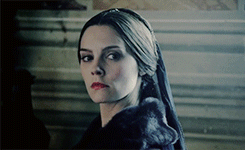
Bianca de Medici
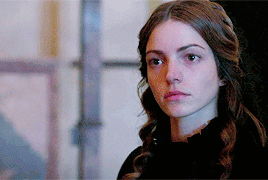
Lucrezia Tornabuoni
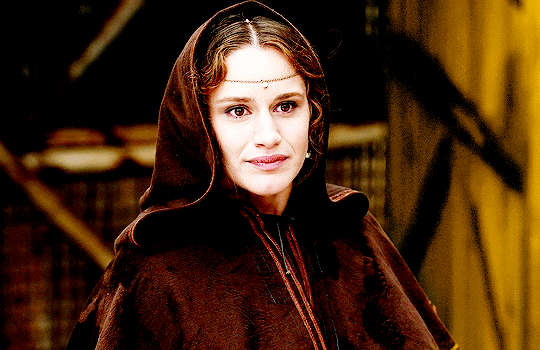

Clarice Orsini
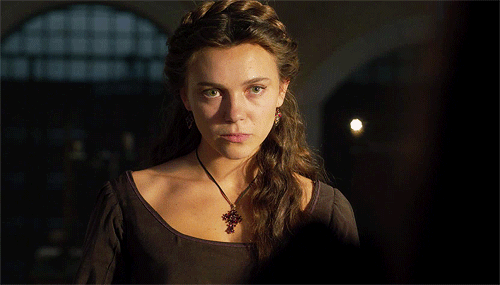
#they're maneaters#medici#medici women#all these women slayed#clarice orsini#more than wife {clarice}#lucrezia de medici#Lucrezia Tornabuoni#contessina de bardi#mother of florence {contessina}#bianca de medici#women of the medici#i medici#medici the beauty and the power#medici the art of power#medici the magnificent#medici family#Spotify
9 notes
·
View notes
Text
Cosimo: You’re too good for me
Contessina: I know
#medici#Medici funny#I Medici#cosimo de medici#mother of Florence#contessina de’ medici#contessina de bardi#Medici the art of power#medici the magnificent#medici the beauty and the power#piero de medici#lucrezia tornabuoni#giovanni di lorenzo de medici#lorenzo de medici#Clarice Orsini#i medici#texts#funny text#medici text#medici texts
119 notes
·
View notes
Photo


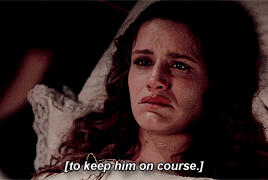

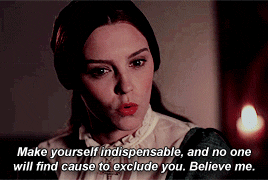
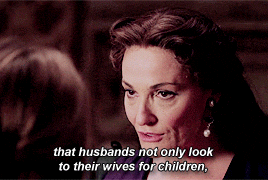


there are more ways for a woman to be indispensable than in just bearing children.
#mediciedit#perioddramaedit#medici: the magnificent#medici: masters of florence#contessina de bardi#lucrezia tornabuoni#bianca de medici#medici#mine#the mother-daughter relationships in this show are just!! so good
584 notes
·
View notes
Text
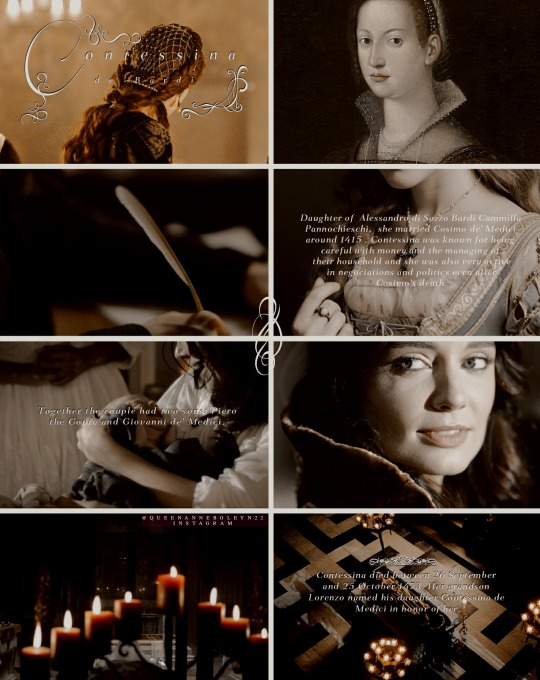
"The Medici, who were prominent wealthy bankers and money lenders, drew even greater long-term advantage from Cosimo's marriage to Contessina Bardi which took place in about 1415. The marriage alliances between the brothers, Cosimo and Lorenzo di Giovanni de' Medici and the Bardi and Cavalcanti families respectively, gave the Medici access to much additional wealth and the prestige of noble blood. The very nobility of these lineages was, possibly, an early indicator of the Medici family's long-term ambition to connect themselves eventually through marriage with an older, non Florentine, aristocracy.
Indeed, the Bardi were a noble, feudal (magnate) family barred from political office. Contessina was the daughter of Alessandro di Sozzo Bardi, count of Vernio. Her mother, Cammilla, was the daughter of Raniero di Guido Pannochieschi, count of Elci. The Bardi had links with several noble families in Tuscany, and the Medici later relied upon their Bardi relatives for military support. As magnates, they lacked political power but were extremely wealthy, acting as key business associates and financial partners in the Medici bank prior to 1434.The Medici derived additional benefit from the alliance during the years immediately prior to Cosimo's accession to power in 1434, when Contessina's paternal line of the Bardi di Vernio was one of only two of the many lines of the huge Bardi family to support Cosimo in his battle for power with the rival Albizzi faction. The other Bardi were key members ofthe Medici opposition. The loyalty of particular Bardi to the Medici was rewarded in 1434, when Cosimo restored the political rights of the Bardi along with twenty other magnate families, except for those members who were particularly prominent anti-Mediceans. In 1444, the men from the three principal lines of the Bardi of Vernio were exempted from the payment of several taxes. The pivotal nature of this relationship for both the Bardi and the Medici is illustrated by the fact that both families continued to maintain it in the years after Contessina's death."
-"The Medici Women: Gender and Power in Renaissance Florence" by Natalie R. Tomas, Monash University, Australia.
#perioddramaedit#history#edit#history edit#renaissance#contessina de medici#contessina de bardi#donne della storia#donne nella storia#donne italiane#renaissance italy#women of renaissance#italian renaissance#italiansedit#italian history#cosimo the elder#cosimo x contessina#i medici#women in history#Mallory Jansen#cammilla pannochieschi#Alessandro di Sozzo Bardi#de bardi#mediciedit#medici masters of florence#firenze#rinascimento#feminism#cosimo de medici#15th century
182 notes
·
View notes
Photo

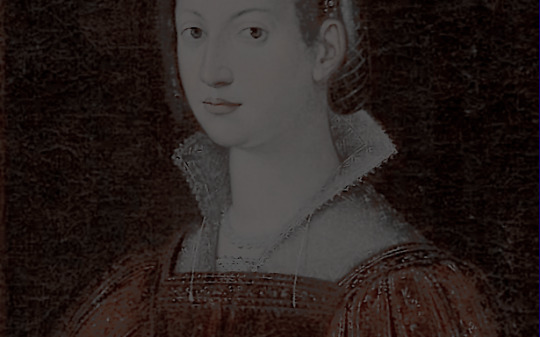
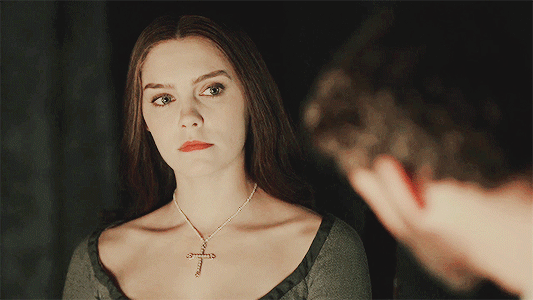

Contessina de’ Medici ( 1390 - 1473 ): a study of her stars.
Little is truly known about the dates concerning Contessina de Medici’s birth and death, so as a last effort, I resorted to astrology in order to set somewhat of a date to this remarkable Florentine woman who — not only — was wife of Cosimo de’ Medici, but also mother of a dynasty, Lady Consort of Florence ( title created for her before it was passed on ) and whose image is so often disregarded given how she devoted most of her life to caring for her household instead of business or politics. Mind you, keeping an organized home in a time when the Palazzo Vecchio was the center of European Renaissance definitely was no easy task, and even so she managed to exert her influence through marriage and tax negotiations in Florence.
For those who do not know much of astrology, though still are interested in reading, here’s a brief dictionary to what the placements mean:
— sun: the person’s essence, what’s truly wanted by them.
— moon: the inward processes to go about it, what’s truly needed by them.
— rising: how the person presents to others, the style to go in order to achieve things.
— venus: how the person goes about romantic and emotional affairs
— mars: described the person’s relationship with what they are passionate about, not necessarily in the romantic or sexual aspect of it.
MOST LIKELY DATE AND HOUR CONSIDERING ASTRO PLACEMENTS:
5th of July 1390 ( Florence, Tuscany, Italy ; 9 am )
⁕ SUN: CANCER.
One of the most prominent aspects of her personality through the few content available definitely tells Contessina was likely to have Cancer as her reining house. Not only does her essence seems driven by the traits of nurturing and protecting, it’s clear by her family oriented actions ( such as many books report that most of her letters concerned family affairs ).
It’s important to add that while the role of women at that time was to be handling house affairs, that doesn’t necessarily mean all had the same way to go about it, and for her it went with innate ability belonging to her sun.
Another aspect that’s clear is the emotional balance represented by her figure. Not only did she raise Carlo ( Cosimo’s illegitimate son ) instead of neglecting him, but also appeared to be, many times, a tie that bound the family together and kept them grounded. She reminded Cosimo ever so often to be more caring for their sons and took upon herself to help with her grandchildren while Piero and Lucrezia busied themselves with the bank and politics after Cosimo’s death and Piero’s rocky health conditions.
This topic could not go by without mentioning her undying loyalty, the first reason why I had a hunch that she was a Cancerian. She remained faithful to her husband until the very end, even through his exile and when he had a bastard child ( while that wasn’t as scandalous as it is in the present, it definitely could have posed as an unbending wedge in their private life; instead, she cared for Cosimo and his declining health until the very end, as read through her letters at the time ).
Cancers are water masters and, much like it, Contessina made Medici rivers run into her to flow even waters.
⁕ RISING: VIRGO.
In addition to the sun, her rising being in Virgo can clearly be determined by the sentence ‘more concerned with being useful than being recognized’. Virgos have a natural urge for service, to be able to help and in an organized manner, always careful with lists and planning and seeking purpose for those ( though never needing to be acknowledged for it ). Needless to say, that only reinforces the Cancerian traits mentioned above.
Yet, it reveals a fear that was beheld of disease and sickness, and one can grasp that by how Cosimo would often be caught mentioning how Contessina worried about his presumed gout. Many were the letters that she’s caught concerning herself with health issues of her children, daughters-in-law, even during the plague outbreaks.
⁕ MOON: CAPRICORN.
Contessina was reported to be a woman who was quite careful with money, and this moon comes in handy to explain her relationship with that aspect of her life. Let’s not forget her family was fairly rich before the Bardi bank declared bankruptcy due the single unpaid loan by Edward III of England, and that her marriage to Cosimo was solely for financial reasons on her family’s part. Thus, the innate urge to master material resources that comes with the ever so responsible Capri, was definitely boosted by that particular fear of repeating that one past failure ( another Capricorn trait ).
This moon is a stark contrast to her caring and warm Cancerian sun, it shows that one side of her that certainly related to Cosimo and ensured the unmatched success of their family at that time’s period. Both held deeply onto stability and the foundations.
Moreover, a Capri’s self-sufficiency and strength can be found in how Contessina seemed to lead the household mostly on her own even when Ginevra Cavalcanti ( Lorenzo the Elder’s wife ), Lucrezia Tornabuoni and Ginevra Alessandri ( Giovanni di Cosimo’s wife ) joined the family. It’s somewhat clear that the latter two were furthermore engaged in business and politics than Contessina, which they were certainly able to do given how she needn’t much help with her considered duties.
⁕ VENUS: CANCER.
Another easy placement, in my opinion, was to rest her Venus as as Cancer. Reportedly, her marriage to Cosimo was amicable and she was ever patient and a good-listener. Not to mention that Venus in Cancer is welcoming and warm, which certainly were traits that solidified how they appeared to rely on each other and built their trust. That does not mean a Cancerian’s heart is easy, no, but she definitely went all the lengths to mend conflicts and keep her heart into those she held affection for ( that much not only romantically ).
Contessina appeared to be one that gave more than she took through what’s known of her in the present. Another point that’s worth mentioning is that this Venus tends to express their creativity through nurturing, entertaining and decorating. Thus it’s no wonder she kept the family taken care of, managed to set place to all those many events Cosimo held and ensured the place’s beauty.
Her charm’s silent, unspoken.
⁕ MARS: ARIES.
While one might question this placement, Aries in Mars brings that bit of fire that seems to be missing from the rest of the previous placements. Let’s not forget that while she ( most likely ) did not run with a horse inside the Signoria back at the day, Contessina definitely wasn’t a meek personality.
Somewhat, I see her passion being the one to care for others, especially since we know so little of her actual likes and dislikes. And even when she looked after her family, one can see mentions of her “fussings” and her tone in letters eventually turning into small complaints despite how it’s all very subtle, reflecting this part of her that definitely could be more energetic, headstrong and hit the ground running.
( heads up! i do not own the media in this post, the gifset can be found here and the pictures were sought on google and filtered with polarr ).
That’s my astrological look into the main details of Contessina de’ Medici’s personality as read through her letters and mentions in books. Also, my way to come forward and say, HAPPY BIRTHDAY, TESSA <3
#contessina de medici#contessina de medici edit#contessina de bardi#contessina de bardi edit#medici#i medici#imedici#medici edit#mediciedit#periodrama#periodramaedit#astrology placements#it's her birthday!!!#cosimo de medici#annabel scholey#medici: masters of florence#medici season 1#masters of florence#medici ambassador#medici ambassadors
89 notes
·
View notes
Text
closed starter for @buonoroberto
though it struck her as reckless to travel separately from her children, lucrezia was thankful that she had listened to the advice of others — just this one time. her unaccompanied travels gave her silence, which was something she hadn’t had in a long time. ever, if anything. she rested her feet upon the seat across from her, leaning in the most unladylike manner among the cushions. she would cry in this rare moment of privacy, but she’d exhausted her tear ducts at the funeral and the endless feasts.
of course, there was the option to stay in rome. to run the home and act as a face of the bank. but it was never her home nor her bank to begin with. the mother that survived her son had run the palazzo before her, and her brother-in-law was a more trusted leader than her. lucrezia had no place there without her husband. it broke her heart to leave rome behind, but there was nothing left for her there except to accept condolences. if anything, this was more for her children rather than for her. her eldest daughter, contessina, was nowhere near fourteen, and she’d already had eager suitors knocking on her door. she turned them away, for the sake of preserving the idea in her mind that her daughters were solely hers. but it pained her to feign naiveté.
they had traveled ahead of her, as lucrezia took care of packing up the household to move. coming back to florence, she felt like a dog returning home with its tail between its legs. but she’d done her duty. of course, she didn’t provide a son to ronaldo, but he had a younger brother whose wife was young and pregnant. for italy, she’d bore brides — peace treaties in petticoats. all things considered, it was a job well done.
her head rested against the cushion, deciding to watch the scenery as she passed by. fields of golden wheat against blue sky, workers that only paused to see the woman in black creep by. soon sky turned to stone as the city walls of florence grew near. she peered out to the city that she’d grown up in; it had barely changed. as the carriage approached the royal palazzo, she sat up and adjusted her skirts. she smiled as she saw the sole figure waiting for her.
“your majesty,” she grinned, taking the hand of her attendant as she stepped out. “i hope you were not waiting forever for me. for it would be my greatest displeasure to put the kingdom’s issues on hold for you to stand — unguarded, may i add — and wait for me.”

#god this got wayyyy too long pls don't feel like u match length#in fact pls dont lol#gphq.starter#gphq: location // rome
12 notes
·
View notes
Photo
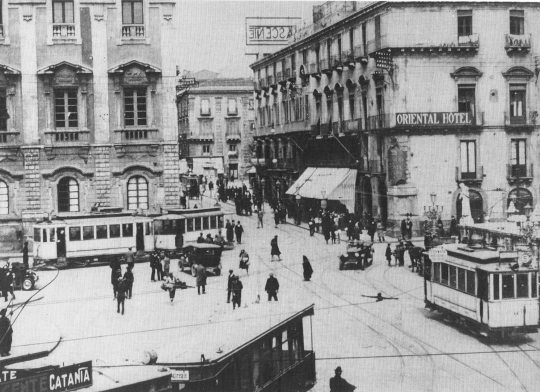
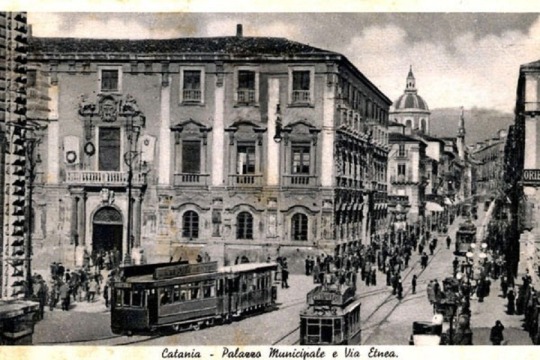


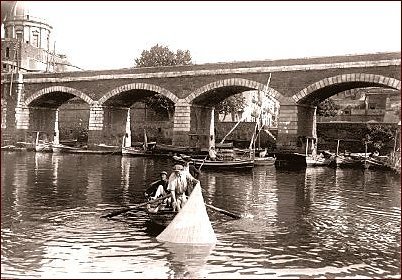
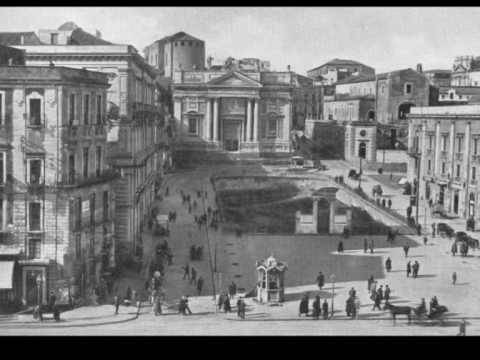
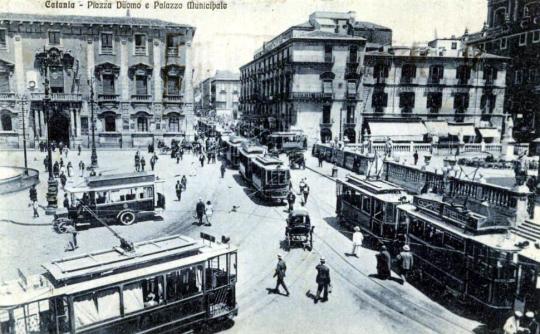
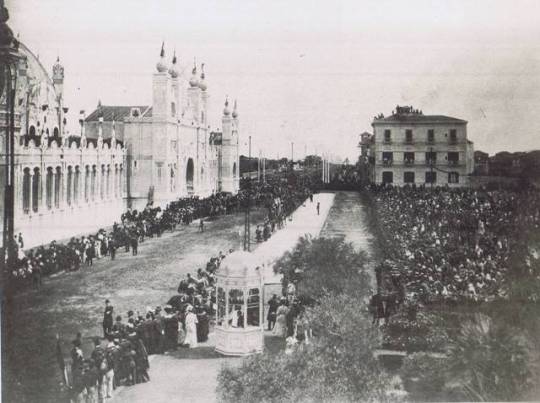

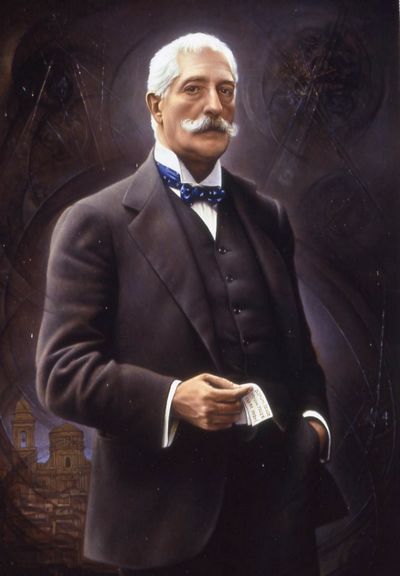
Catania ad inizio secolo - Nelle foto, Mario Rapisarda con la moglie Giselda Fojanesi e Giovanni Verga
L’AFFAIRE GISELDA
Come in tutte le storie d’amore e tradimenti, anche in questa c’è un Lui (innocente?), una colpevole Lei e un simpatico mascalzone (l’Altro). Lui era Mario Rapisarda, detto il Vate, poeta catanese di gran fama e prolifica penna, dal grande ego e irascibile carattere. L’amore per la poesia era tale che cambio il suo nome in Rapisardi, perché il suo nuovo nome facesse rima con Leopardi. Lei era una giovanissima e graziosa ragazza Toscana, di non comune cultura di cui Rapisarda/di si innamora a Firenze e per cui trova a Catania un posto di insegnate affidandola all’ Altro per farle affrontare il lungo e periglioso viaggio verso l’isola. L’Altro è uno scrittore alle prime armi, gagliardo e prestante, un certo Verga Giovanni, che delle donne ama l’eccitazione emotiva che gli fanno provare, quella tensione poetica e sensuale che in lui fanno nascere e che una volta soddisfatta, lo porta a lasciare andare con eleganza e disinteresse il soggetto prima poeticamente esaltato, carnalmente amato e poi comodamente dimenticato. Il suddetto Verga quindi, accompagna la giovane donzella rubandone la purezza sul traghetto che li porta in Sicilia. All’arrivo si dilegua con la solita eleganza, esaltando, presso l’amico Rapisarda/di le doti della Ragazza. Lui si innamora perdutamente. Essendo un poeta, l’essere innamorato vuol dire avere una donna a cui inviare versi, elegie e lettere e poemi.La donna diventa una musa, una continua sorgente di ispirazione. Per due anni assiduamente la corteggia, dedicandole quei fiumi di ampollose parole che chiamavano poesia. Alla fine lei cede e purtroppo si sposa. Dico purtroppo perché la vita coniugale si rivela essere un disastro già dal pranzo do nozze fatto nel corridoio della casa del Vate, con poco cibo e gli invitati che anche a tavola si tengono il cappello. Il grande poeta si rivela facile all’ira, a far andare le mani e pronto ad insultarla di fronte ad estranei così come era pronto a donare leggiadri versi alle nuove donne amate. Essendo lui un poeta, la moglie non avrebbe dovuto provare gelosia per gli elogi che le altre ricevevano. La suocera poi rincara la dose considerandola donna da poco per quella sua abitudine di lavarsi tutti i giorni. Insomma la giovane ragazza, si pente ben presto di aver ceduto alle lusinghe poetiche di un poeta che è anche un uomo collerico, egocentrico e manesco. Così, incomincia a riempire il tempo nell’ostile casa in cui era finita, leggendo e scrivendo. L’assiduità nella lettura, l’abilità nello scrivere, la portano presto ad avvicinare di nuovo l’Altro, il suddetto Verga Giovanni, che con perizia e abilità collaudata, la porta presto a tradire il grave vincolo del matrimonio con palese e comune soddisfazione. Arriviamo al dramma. Un giorno il Rapisarda/di scopre una lettera, apparentemente anonima in cui un amante dona belle frasi d’amore alla moglie e le parla di alcune personalità letterarie che le aveva fatto incontrare e che il Rapisarda/di aveva ben pensato di insultare creandosi, tra i tanti che già aveva, altri acerrimi nemici. Il Vate si senti tradito tre volte. La prima, da mascolo siciliano, già si sentiva spuntare sulla testa le temute e terribili corna che a sentir dalla lettera dovevano essere ben ramificate ed estese. Il secondo tradimento veniva dall’amico che si approfitta della moglie senza curarsi della loro immortale amicizia, ne di dare preavviso o avvertenza. Ma il terzo motivo è quello che lo sconvolge perché alle corna ci si fa l’abitudine, e agli amici si può perdonare, ma che la moglie faccia comunella con coloro che in versi e rima lo prendono in giro, questo no, non lo può accettare. Caccia la moglie di casa, in lacrime scrive alle amiche contesse e baronesse per raccontare l’atroce dolore e, come ogni poeta deve fare, chiude le lettere in versi. Lei, fugge dall’amante, il quale, con la solita creatività teatrale, la spedisce a Firenze, mentre lui, impavido, dice di attende di essere sfidato a duello dal cornuto, scusate, dal Vate. Il Vate però si reputa troppo intelligente per scendere alla bassezza di un duello tipo quella Cavalleria Rusticana che renderà famoso l’Altro, il Verga Giovanni. Per cui anche quest’ultimo, stanco di aspettare una sfida al duello che non sarebbe mai venuta, incomincia a scrivere ad un'altra contessina, e poi ad un'altra amica e così via, passando, con l’infelicità propria degli artisti a non trovare pace passando di letto in letto senza riuscirr a fermarsi in nessuno. Lei, tornata a Firenze mangia la foglia e capisce che il Verga Giovanni non ha la minima intenzione a raggiungerla e così decide di mandare a quel paese i poeti innamorati, incominciando una nuova carriera come quotata scrittrice e appassionata insegnante e promotrice del metodo Montessori. Alla fine aveva capito che una donna sola, vale più di un cattivo marito e di un pessimo amante.
As in all the stories of love and betrayal, even in this there is a He (innocent?), A guilty Her and a nice scoundrel (the Other). He was Mario Rapisarda, called Vate, a famous poet from Catania and a prolific pen, with a great ego and irascible character. The love for poetry was such that he change his name to Rapisardi, because his new name rhyme with Leopardi. She was a very young and pretty girl from Tuscany, of uncommon culture of which Rapisarda/di falls in love with her in Florence and for which he finds in Catania a teaching position and introduced her to the Other to joint her in the long and perilous journey to the island. The Other is a novice, vigorous and handsome writer, a certain Verga Giovanni, who loves women due to the emotional excitement he feel, the poetic and sensual tension they give him and that once satisfied, brings him to let go with elegance and disinterest the subject before poetically exalted, carnally loved and then easily forgotten. The aforementioned Verga then accompanies the young damsel stealing the purity on the ferry that takes them to Sicily. Upon arrival, he disappears with his usual elegance, exalting, to his friend Rapisarda/di the dowries of the Girl. He falls madly in love. As poet, being in love means having a woman to whom to send verses, elegies and letters and poems. The woman becomes a muse, a continuous source of inspiration. For two years he wisely courted her, dedicating to her those rivers of bombastic words they called poetry. In the end she gives in and unfortunately gets married. I say unfortunately because the married life turns out to be a disaster already from the wedding lunch in the corridor of the Vate’s house, with little food and the guests who also keep their hats at table. The great poet proves to be easy to anger, to make his hands go and ready to insult her in front of strangers as he was ready to give graceful verses to the new loved women. Being a poet, his wife should not have felt jealous for the praise the others received. The mother-in-law then adds to the dose, considering her a recent woman for her habit of washing herself every day. In short, the young girl soon regrets having succumbed to the poetic flattery of a poet who is also a choleric, egocentric and outlandish man. Thus, he begins to fill time in the hostile home where he ended up, reading and writing. The diligence in reading, the ability to write, soon led her to approach the Other again, the aforementioned Verga Giovanni, who with proven skill and expertise, soon led her to betray the grave bond of marriage with obvious and common satisfaction . Let’s get to the drama. One day the Rapisarda/di discovers a letter, apparently anonymous in which a lover gives beautiful phrases of love to his wife and tells her about some literary personalities that he had made her meet and that Rapisarda had thought of insulting making, between the many he already had, other bitter enemies. The Vate felt betrayed three times. The first, from the Sicilian male, already felt the dreaded and terrible horns appearing on the head which, according to the letter, must have been well branched and extended. The second betrayal came from the friend who took advantage of his wife without caring about their immortal friendship, nor to give notice or warning. But the third reason is the one that upsets him because one gets used to the horns, and to the friends one can forgive, but that the wife makes common knowledge with those who in verse and rhyme tease him, this no, he cannot to accept. He hunts the wife of the house, in tears he writes to his countesses and baronesses to tell the atrocious pain and, as every poet must do, closes the letters in verse. She escapes from her lover, who, with the usual theatrical creativity, sends her to Florence, while he, fearless, says he expects to be challenged to a duel by the horned, sorry, by the Vate. The Vate, however, considers itself too clever to go down to the baseness of a duel like that Cavalleria Rusticana that will make the Verga Giovanni so famous. So even the latter, tired of waiting for a challenge to the duel that would never come, starts writing to another countess, and then to another friend and so on, passing, with the artists’ own unhappiness to don’t find peace by going from bed to bed without being able to stop in anyone. When she returns to Florence, she understands that Verga Giovanni does not have the slightest attention to reach it and so she decides to send the enamored poets to the hell, starting a new career as a listed writer and passionate teacher and promoter of the Montessori method. In the end she understood that a single woman is worth more than a bad husband and a bad lover.
25 notes
·
View notes
Photo


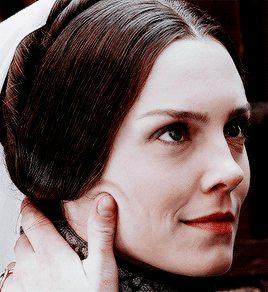

The importance of a mother’s intercessory role as a source of power for the Medici women is certainly evident in the case of Contessina de’ Bardi. Her relationship with her grandsons, Lorenzo and Giuliano, was a close one. She wrote to Piero and Lucrezia in 1461: ‘Lorenzo is a good lad and they [her grandsons] willingly spend time with me quite often’. Contessina had the ability to exercise a maternal authority that extended beyond the walls of the Medici Palace; it appears she became a figure of some significance as a Medici dowager following Cosimo’s death in 1464. She played an important role, it seems, as an arbiter of influence in relation to the key issue of the contracting marriages between members of the Florentine patriciate. – Natalie Tomas, The Medici Women: Gender and Power in Renaissance Florence
#mediciedit#perioddramaedit#historyedit#contessina de bardi#our darling <3#medici: masters of florence#i medici#history#italian history#early modern history#15th century#period drama#our gifs#our creations
1K notes
·
View notes
Text
@patronodellearti

“ There is no knowing when we shall return to Florence - you must try to rest here. ” Cosimo’s gaze had remained upon the papers scattered upon the top of his desk; letters, transaction records and coins laid out in a chaotic mess that he somehow still managed to navigate his way around with great ease. While it had not so much as been suggested verbally, he held no delusions that his sons were supportive of his decision that Contessina must stay behind, he was at least thankful that it had not been brought up so to save the argument and raised voices. They needed to appear a united front now more than ever, for their safety and for Contessina’s. She may have been miles away, alone, but Cosimo had faith in that Marco would keep her safe. He had been furious with her but the decision made was not entirely a punishment when there were none he trusted more to secure the bank in his absence than Contessina; Cosimo just was never very good at communicating, even when he meant well.
Finally, Cosimo abandons the papers on his desk and dedicates his full attention to looking towards his son, examining how truly exhausted he looks before rising to his feet and closing some of the distance between them. “ You know that your mother will worry, how might she feel to know you do not intend on sleeping until you return to Florence? ”
@patronodellearti
#' PRIMUS INTER PARES. ' | cosimo |#patronodellearti#isaaaaaccccc! hi again#' POWER BREEDS ENEMIES. ' | main verse |
10 notes
·
View notes
Text
❈ ✼ ❈ @ilvecchiio // cont. from here

A look of worry settled quickly upon Piero’s face, so quickly that he has no time to mask it for the sake of his pride. Here stands a beautiful young woman, curls gracefully flowing down her back and a face as pure as porcelain, and he feels like nothing more than a bag of nerves who is undeserving of such beauty. WHAT IF SHE BELIEVES THE SAME AS HE.No, he silently scolds himself and reminds himself of what his mother had told him over and over before this meeting came to be; the Medici may not be of noble blood but Bardi were and Contessina’s blood ran through his veins even without the Bardi name. He was not lesser in the eyes of society and yet, physically, he still felt less than deserving. “ What did you expect, Madonna? I hope wholeheartedly that different is not DISAPPOINTING. ”
IT IS NOT a question she was eager to receive --- though lucrezia supposes she invited it. in truth... she is not sure what she expected. betrothed to the medicis’ eldest son! every soul in florence knows the name medici. her pulse had raced, chest tight with anticipation, but she had not known exactly what man she would marry. now, face-to-face with piero de’ medici, she is... underwhelmed. his brother is a sparkling, massive boy, lined with muscle, and his father is a handsome man... but piero himself is slender and quiet, unable to meet her eyes. she cannot help a slight sense of disappointment. painting on a smile, lucrezia raises her head rather than demurring, meeting piero’s hesitant gaze. ‘ i would not call it so. fortunately... it seems we will have the chance to get to know each other. ’

#(( history: cosimo de medici looked like a depressed toucan bird ))#(( medici's casting directors + everyone else from this point in time on: richard madden tho man ))#(( cosimo was a babe now dont make the rules im sorry ))#ilvecchiio#ii . ' a determined light in her warm eyes ' ( lucrezia interactions )#(( but look i lOVE baby piercrezia we have to run with this ))
4 notes
·
View notes
Text
Counter to popular belief,
I don't actually hate Cosimo.
I just think Contessina is a queen and deserved better.
Cause she totally did
#i medici#cosimo the elder#contessina de bardi#mother of florence {contessina}#father of florence#the medici#the medici family
5 notes
·
View notes
Text
Maddalena de' Medici (Borgias OC)
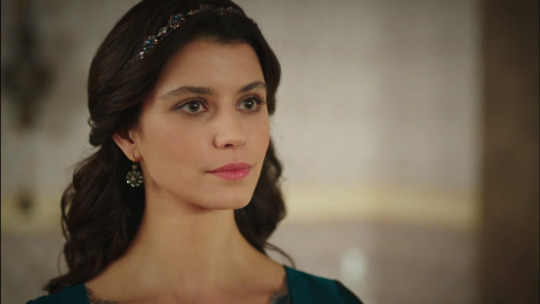
Name (full name): Maddalena de Medici
Nickname: Daughter of Florence, Daughter of the Magnificent.
Age: 19 in 1492
Gender: Female
Status (Single/Married/etc.): Single
Sexual Orientation: Straight
Face claim: Beren Saat
Birthday: July 25th
Personality: Maddalena is very close to her family, specifically her mother.
Family/Relations:
Father: Lorenzo the Magnificent
Mother: Clarice Orsini
Brother: Piero
Brother: Giovanni
Cousin: Giulio
Sister: Contessina
Sister: Lucrezia
Personality: As any Medici, Maddalena had a fruitful education, and her mother made sure she spent time on her bible studies as well. She is very smart, and quite the politician. Growing up in a darker time in Florence, she learned to be careful and play the game of politics. She is proud to be a Medici and a Florentine and would protect her family and her city with all that she is. She is incredibly close to her family, and loves them very deeply, even if she does not always agree with what her eldest brother does. She is a sweet woman, and kind. She cares for those lesser than she and wants to help them, but you should not mistake her kindness for weakness.
History: While Maddalena was only five when the Pazzi Conspiracy she saw and felt the shift in her father, and all of Florence. She had a short childhood, after the Pazzi conspiracy, it became about survival and her father was never around as much. In part, she understood that. He was fighitng for Florence, for their family. But even when he was around, there was always something dark about him. Something that had not been there before the conspiracy. She spent a lot of her childhood away from Florence, in the Villas with her mother and siblings as her father fought. She did not remember much from the war with the pope, but she knew it was bloody and costly. She lived in Florence more as she grew, and like those before her, she fell in love with the city. Her father was around more once things had settled down, and she enjoyed reading with him, but she could still see the conflict in his face, and the weight on his shoulders. The golden age of Florence ended with the Pazzi Conspiracy.
Despite the obvious hardships while growing up, Maddalena was still incredibly close to her family and she learned what it was to be a Medici. They lived and served Florence and the people of Florence.
Strengths/Weaknesses: She always tries to look for the good in people and the world but at the same time it can affect how she sees things, and how she reacts. Even though she is a woman she is well versed in politics and always aware of the current situation her family is in.
#medici#medici OC#Maddalena de' Medici#Daughter of Florence#Daughter of the Magnificent#a medici and an orsini#rp#rp blog#1x1#humble and penitent be damned#oc#a medici#german comic con#medici oc#giuliano de medici#giovanni di lorenzo de medici#medici family#cosimo de medici#contessina de’ medici#lucrezia tornabuoni#lucrezia de medici#borgia#cesare borgia#juan borgia#medici: masters of florence#clarice orsini#medici rp starter
5 notes
·
View notes
Note
Piero (di Lorenzo - why do they all have the same names ackk) deserved so much better. I don't understand why his father saw so little in him. He was a smart, sweet boy that definitely had more morals and brain cells than his father ever did in s3. Also Lucrezia and so many others were way more brilliant than they're given credit for. And why didn't Piero ever ask about his godfather?? That could have been such a good moment to introduce Francesco and Lorenzo's conflicted feelings about him.
yes to all of this!!!!! i can’t remember who said this but i remember seeing someone say something like “lorenzo acts like he already knows piero will someday be called ‘piero the unfortunate’” and that’s so true, like yeah we the audience know that piero will indeed turn out to be bad at running the family and will get them kicked out of florence, but lorenzo has no way of knowing that and so his treatment of piero comes off as completely unjustified and cruel. in fact, after watching the season i was left with the impression that piero does a bad job running the family BECAUSE lorenzo didn’t prepare him for it properly, not because he was naturally incapable of it the way lorenzo claims.
and i was waiting the whole season for piero to ask somebody about his godfather but it never happened! why even make francesco his godfather if it’s never going to come up again? it would have been not only a great callback to s2, but also perhaps a slight explanation for why lorenzo treats piero so much worse than all the other kids, because he reminds him of francesco and how stupid and guilty he feels for having trusted him. i can totally picture clarice and piero having a quick little chat about this, it would’ve worked so well and only taken like 60 seconds.
lucrezia tornabuoni is the most underrated character of the whole show and that’s a hill i will die on, everybody’s so busy fawning over the two “main” leading ladies contessina and clarice that they ignore lucrezia out there breaking her back from carrying the whole medici family on it for 20+ years. she works twice as hard as contessina and clarice and gets half the love and attention from fandom because she's the mother figure rather than the pretty young wife of the protagonist. respect her!!!!
#i will be making a million lucrezia gifsets when i do my rewatch and that's a promise#answered#prettyvenoms
14 notes
·
View notes
Photo

CONTESSINA ZABINI ♦︎ SLYTHERIN ALUMNA ♦︎ DEATH EATER ♦︎ FC: ZOE KRAVITZ ♦︎ OPEN
B I O G R A P H Y :
[ up to player ]
D E T A I L S :
☛ CANON INFORMATION : [ Blaise Zabini’s mother ]
☛ AFFILIATION : Death Eater ( unmarked by choice )
☛ BLOOD STATUS : halfblood ( HALF-VEELA )
☛ AGE : 27
☛ FORMER HOUSE : Slytherin
☛ TRAITS :
Positives : charming / resourceful / artistic
Negatives : shallow / greedy / arrogant
☛ OCCUPATION : [ suggested socialite / potioneer ]
C O N N E C T I O N S :
NARCISSA MALFOY, PHAEDRA BELLCHANT, WALDEN MACNAIR, KALA PATIL : friends
FLORENCE FORTESCUE, ASTORIA SELWYN, OTTO BAGMAN : former flames
CORBAN YAXLEY : thinks he would make an advantageous match
ALANA MULCIBER : mentors, wants her to be more subtle
ORPHEUS HAWKWORTH, EVANDER ABBOTT, AUGUSTUS ROOKWOOD : suitors, toys with
EVAN ROSIER, MERWYN FINWICK : amusements
#blaise zabini#contessina zabini#marauders rp#hp roleplay#hp rp#harry potter rp#harry potter roleplay#marauders roleplay#ac#poc#f#s#de#hb#zoe kravitz#open#openf#opende#opens
1 note
·
View note
Text
( AURORA RUFFINO, SHE/HER, CISFEMALE ) HEAR YE, HEAR YE! Allow me to introduce LUCREZIA VITTORIA of ITALY. The 24 year old PRINCESS is known to be INDEPENDENT and SHARP-WITTED, but rumors about court claim SHE can be VOLATILE and STUBBORN when crossed. Only time will tell where their interests belong. Penned by ROXANNE ( est + 20 + she/her ).
hello hello! so excited to be here and get back into rp :) i haven’t really fleshed lucrezia out too much, so i’m pretty open to everything ! just shoot me a message or a dm and i’ll get to ya as soon as possible !

THE BASICS
NAME: lucrezia antonella vittoria
AGE: twenty-four
GENERAL PHYSICAL DESCRIPTION: petite and sylphlike. chestnut, waist-length hair. soft skin with the slightest tan in the summer. small, pointed nose. long eyebrows, almost always furrowed together. large, green eyes — so large she might always look as though on the brink of tears.
HOMETOWN: florence, italy
TYPE OF HOME: palace
RELATIONSHIP STATUS: widowed
CURRENT FAMILY:
roberto vittoria — brother
sofia vittoria — sister
ronaldo di bardi — husband ( deceased )
contessina di bardi — daughter
maddelena di bardi — daughter
serafina di bardi — daughter
FAMILY BACKGROUND: one of five legitimate children ( 3 boys, 2 girls ) of the late roberto vittoria ii and his first wife, clotilde marie vittoria. however, due to her parents’ mutual infidelity, she has multiple step-siblings.
FRIENDS: when she was married, she devoted her life to being a wife and to motherhood. with a full house, she hadn’t had time for socializing. even now, from returning from rome to bury her beloved husband, she mostly keeps to herself and her children. perhaps some companionship can bring out the lost young girl in her.
OTHER CLOSE RELATIONSHIPS: her daughters are her entire life. she devotes herself to giving them the best life she possibly can. as protocol would have it, the young ladies are generally taken care of by nursemaids and governesses, but lucrezia will often break protocol to spend time with her daughters.
RELATIONSHIP WITH MEN: prior to being married, lucrezia often joked about being “one of the men.” she loved horseback riding, archery, and could match her brothers both in drinking and in vulgar speech. it’s not that she lacked femininity; she was simply a fidgety child. she got along easy with men, in fact, that’s what drew her husband to her. the lucrezia now is hardly recognizable from the lucrezia from before.
RELATIONSHIP WITH WOMEN: lucrezia gets along with women perfectly fine, although she finds idle conversation and stationary activities rather boring. instead, she prefers playful rapport and dancing with female companions.
JOB: princess of italy
DRESS STYLE: lucrezia rarely trifles with fashion, often letting her ladies or her children help her decide what styles to wear. she dresses simply and elegantly, often in dark colors, with gold embroidery. the brightest color you might see her in is a scarlet red, but that’s only for celebratory occasions.
A BRIEF LOOK
RELIGION: roman catholic
ATTITUDE TOWARDS RELIGION: devout
FAVORITE PASTIMES & HOBBIES: reading, horseback riding, card playing, dancing
FAVORITE FOODS: seafood, fruit
PERSONALITY
STRONGEST PERSONALITY TRAIT: independence. lucrezia is much the kind of person to do as she pleases, and not make decisions based on how other people would feel about it. perhaps this trait didn’t attribute to her being the picture perfect wife, but it has helped her to transition easily as the leader of her family in light of her husband’s death.
STRONGEST NEGATIVE PERSONALITY TRAIT: volatile. in her adolescence, she was known to break dishware or even lodge an embroidery needle in a clothing item or tapestry. she’s since matured from her physically violent ways — for the most part. instead, her words will do the harm.
SENSE OF HUMOR: lighthearted and teasing; for the most part she knows what lines not to cross.
TEMPERMENT: choleric ( if she could be a king, she would )
CONSIDERATION FOR OTHERS: lucrezia could hardly be called selfish; she enjoys visiting those in need and donating or helping as she is able.
HOW OTHER PEOPLE SEE HER: many would describe her as a strong character. though her physical stature might suggest meekness and delicacy, she’s quite the opposite. in fact, her inability to be controlled drove away some suitors, much to her mother’s dismay.
OPINION OF HERSELF: she does her best to hide it, but all she sees of herself is a broken and lost woman. after marriage, she turned her life around and made her life about her family. all she has left are her daughters, but she’s not naive enough to ignore the fact that they’re going to be pawns of the italian kingdom, like she was.
AN ENDING
AMBITIONS: to make something of herself and her daughters
PHILOSOPHY OF LIFE: dreams don’t work hard unless you do
MOST IMPORTANT THING TO KNOW ABOUT THIS CHARACTER: she’s a blank slate ! come plot w me :)
3 notes
·
View notes
Note
Prompt for you! Cosimo allowing Contessina to comfort him about Lorenzo. (Do you remember when she did and he told her that he sleeps better alone? Broke my heart! :(
okay i know it’s been ages and i have no idea if this ship is still a thing since it’s been so long since the show came out lol. also i have no excuse for abandoning this blog, i really am sorry.
this is short and pretty angsty so idk if this is what you were looking for but fingers crossed. also, this prompt is so old and i feel so bad for sort of abandoning this blog and these prompts but i guess i just didn’t have any inspiration to write them. buuuut, all this talk about season 2 has me so hyped and i realised how much i missed these 2 characters so ahhh!!! also dont really know how accurate this is since it’s been ages since i watched i medici so do forgive me for any errors.
Lorenzo dies so suddenly that Cosimo at first, does not know what to do. He doesn’t know if he should cry or yell or seek revenge or leave Florence. Everyone from his childhood is dead. His mother, his father, and now his own brother. It is as if God himself is playing a cruel trick on him and Cosimo doesn’t know when it is going to stop.He sits in his study, quill poised in one hand but he doesn’t know what to say. Who shall he write to? Who shall help him? His name has been tarnished and torn, dragged through the mud and then again once more, for good measure. He doesn’t know if anyone will be willing to help him.
He sets the feather down, next to a murky pot of ink just as there’s a knock on his door before it opens. Contessina looks unsure as she walks in; a look that no one but him can identify since she is always so confident, chin always up and shoulders never slouched. She sits opposite him and there is a handful of seconds where they both just look at each other before she spokes, voice soft.
“Cosimo, I am so sorry,” she says, still watching him carefully. “I know it is tough and I cannot imagine how you must feel, my love.”
The term of endearment catches him off guard. They have never been like that.
“Thank you,” he responds. Something flickers on her face but it is gone before he can pin point what it was.
“Are you hungry? Should I ask for someone to send your supper here? Everyone else has already eaten,” she says. It is odd, how awkward conversation is between them, even after so many years of marriage.
“No, I cannot eat in a time like this.”
“Cosimo,” she starts, voice gentle. “You must speak to me. You cannot hold all this sorrow in your heart. I am your wife, you can be honest.”
“And why would I do that?” Cosimo says. It is a dismissal and she knows it, knows him. She pushes out of her seat, left hand clenched. When she’s at the door, she turns around. All the softness in her eyes are gone, and her shields are back up.
“You know, you are not the only one who lost him, my love,” she says and this time the endearment is cold. Mocking. She’s out the door right after and he strains to hear her footfalls against the floor, and once the sound has faded away, he slumps in his seat. A few minutes later, he is fast asleep. He ignores the heavy weight of guilt that settles in his chest.
***
Cosimo awakes, confused and groggy. He glances to the window and realises it is past midnight. The crick in his neck makes him wince as he stands up, stretching his muscles. He walks back to his chambers and when he opens the door, he is surprised to find his wife awake. She sits in front of the vanity and when he walks in, the look of surprise on his face mirrors her own. She was not expecting him.
“You’re still awake,” he states, sitting on the edge of the bed to untie his shoes. She runs a brush through her hair, and Cosimo watches the the way the silky strands settles against her shoulder and down her back. Years ago, when their son was only a young boy he had once told her how much he liked her hair. She did not say anything in response, but ever since that night she would comb her hair only after he had returned to their room, every night.
“As are you,” she counters. She stands up, before making her way to her side of the bed. Cosimo clears his throat, pushing his shoes to the corner before removing his shirt.
“I was wrong,” he says and when he looks at her, she isn’t looking at him but he knows she is listening. “I was rude earlier.”
She looks him straight in the eye when she responds.
“It is nothing I am not used to, my love.”
He doesn’t know if the endearment is mocking or not.
“My emotions, they got the better of-” he starts but she interrupts him.
“I lost him too,” she says, voice shaky. “I loved him too, just like you Cosimo.”
“I know!” Cosimo yells, and his voice cracks. “Don’t you think I know? Everyone in this house loved him. And now he is gone. And it is my fault.”
He doesn’t realise he’s crying until he feels her hands wipe the tears running down his face. She pulls him to her, and he lets her, resting his face in the crook of her neck. She runs a hand through his hair and he can feel himself shaking, falling apart so easily. He doesn’t know how long he stays like that but when he lifts his head, her eyes are so sad.
“I am sorry, Contessina,” he says. “I just, I just do not know what to do.”
“Let me help you,” she murmurs, leaning her forehead against his. “Cosimo, you cannot push me away every time.”
“I know,” he murmurs back, and he does. She is his rock, has been since the day they were wed. He knows that if not for her, he would have been able to do none of this. His father once told him that as well. “I’m sorry,” he repeats.
“Sleep, Cosimo. You need rest,” she instructs and he lets her place his head on his pillow. She lays down next to him and he finds her hand, intertwining his fingers with hers before kissing her knuckle.
75 notes
·
View notes